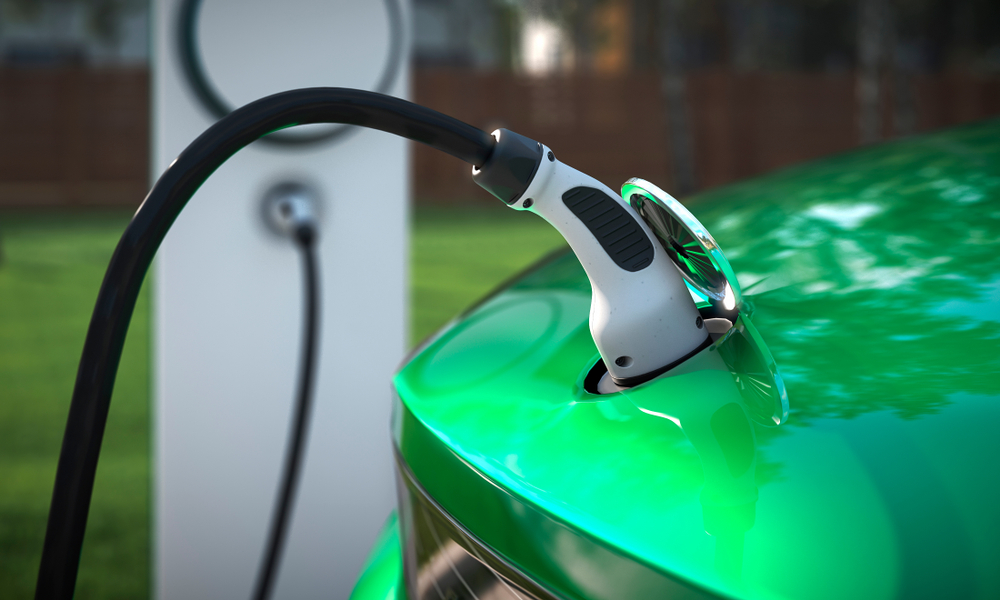36Kr has learned from multiple industry sources that Sunwoda Mobility Energy Technology (SEVB) has clinched deals to supply batteries for Li Auto’s M7 and M8 models, as well as “Kunlun,” Xiaomi’s third EV model.
When 36Kr reached out to Sunwoda for confirmation, the company responded that it could not disclose details due to confidentiality agreements.
Currently, the Chinese battery industry is dominated by Contemporary Amperex Technology (CATL) and BYD, with CALB in third place, while companies like Eve Energy, Gotion High-Tech, SEVB, and Svolt Energy Technology jockey for position.
For two years, a relentless price war has raged in the automotive market, with batteries at the epicenter of cost-cutting strategies. Second-tier battery manufacturers, led by CALB, face increasing pressure to lower prices, sometimes even selling at a loss to stay competitive.
One insider revealed to 36Kr that Xiaomi’s latest vehicle is highly cost-driven, a factor that played a crucial role in SEVB securing the contract. The price? Below RMB 0.60 (USD 0.08) per watt-hour. In more extreme cases, Zenergy’s aggressive pricing—offering battery cells below RMB 0.35 (USD 0.05) per watt-hour—secured them a major supply role with Leapmotor.
This intense competition is seeing second-tier manufacturers encroach on orders previously monopolized by CATL. For example, Nio has introduced CALB as a secondary supplier, and Li Auto has brought in SEVB and Svolt to supply batteries for certain models. Therefore, for second-tier battery manufacturers, the competition is both brutal and opportunistic.
About Sunwoda
Founded in 1997, Sunwoda initially made its mark in battery pack production for consumer electronics, supplying brands like Apple, Huawei, Xiaomi, Oppo, and Vivo. The company went public on the ChiNext board in 2011. In 2014, as new energy vehicles (NEVs) gained popularity, Sunwoda established SEVB, which focuses on both pack and cell manufacturing.
SEVB has attracted significant investment from companies such as Li Auto, Nio, Xpeng Motors, SAIC Motor, GAC Group, Dongfeng Motor, and investment giants like IDG Capital, Shenzhen Capital Group, and the National Green Development Fund. A final financing round in June 2023 valued the company at RMB 36 billion, although its ChiNext listing application has since expired.
SEVB has carved out a niche in the hybrid electric vehicle (HEV) market, maintaining the top spot for three consecutive years according to SNE Research. Although HEVs have a small market share in China, the demand for high charging rates has driven SEVB’s development of fast-charging technology.
Among second-tier battery companies, SEVB stands out for its fast-charging technology. In 2022, SEVB’s SFC480 battery was installed in the Xpeng G9, marking a significant milestone.
This year, SEVB introduced the third version of its fast-charging battery at the Beijing Auto Show. Available in both lithium iron phosphate (LFP) and ternary lithium versions, the new battery can achieve a peak charging rate of 6C, reaching 80% state of charge (SOC) in just ten minutes. Despite these advancements, the Xpeng G9 remains the only mass-produced model using SEVB’s fast-charging technology.
SEVB serves over 34 vehicle models across 18 clients, including major players like Li Auto, Xpeng, Leapmotor, Geely (including its Zeekr, Galaxy, and Lynk & Co sub-brands), Dongfeng, GAC, and SAIC. The company has also secured international deals, supplying batteries for Volkswagen’s entire overseas hybrid series and Volvo’s GPA series.
However, SEVB faces the challenge of a diverse but non-elite customer base, resulting in high volumes but low margins. The contracts with Li Auto and Xiaomi provide a breakthrough opportunity, potentially boosting SEVB’s market position.
Li Auto, with its monthly sales of 30,000 units, is rapidly rising in the industry. The company plans to launch its all-electric models, including the Li Mega and three pure electric SUVs (M7, M8, and M9), in the first half of 2025. Li Auto’s strategy focuses on solving range anxiety through fast-charging capabilities, which aligns well with SEVB’s fast-charging technology.
Previously, industry insiders analyzed that, while CATL’s batteries could achieve certain charging rates at the cell level, SEVB could match them, with the only difference being CATL’s thermal management design. However, SEVB’s market share largely depends on user acceptance of its products and brand. An insider told 36Kr that, despite Li Auto deploying SEVB’s batteries in the Air variant of its L8 model last year, annual sales barely exceeded 10,000 units.
Future prospects for EV battery manufacturers
The battery industry is poised for significant shifts. CATL rose to prominence by securing BMW’s orders and solidified its position with Tesla. Similarly, CALB’s growth was fueled by orders from GAC Group. SEVB’s trajectory mirrors these success stories, with substantial growth expected by 2025.
As fast-charging technology and high-capacity plug-in hybrid electric vehicles (PHEVs) gain traction, second-tier battery manufacturers like SEVB may find niche opportunities for growth. The rise of 4C and 5C fast-charging batteries, and the potential of 6C products from competitors like CALB and Eve Energy, signify an evolving market. SEVB, with its dedication to fast-charging technology and existing partnerships, is well-positioned to capitalize on these trends.
Winning Xiaomi’s orders also ties into the broader industry shift towards hybrid cars. Xiaomi’s SU7, with its limited suppliers (CATL and BYD), demonstrated massive demand, with orders surpassing 100,000 units within a week of its launch. Rumors suggest Xiaomi’s third vehicle will be a HEV, a segment where SEVB has relevant expertise, thanks to its experience with Li Auto.
If Xiaomi’s new models maintain their sales momentum and SEVB continues to secure major orders, its shipment volumes could see a significant increase. SEVB’s total battery shipments in 2023 were 11.66 GWh. A single model from Xiaomi could add 2 GWh annually, marking a substantial boost.
The dynamics of the battery industry can change rapidly with just one or two major orders. SEVB’s path resembles those of industry giants, and the results should be evident by 2025.
KrASIA Connection features translated and adapted content that was originally published by 36Kr. This article was written by Han Yongchang for 36Kr.

